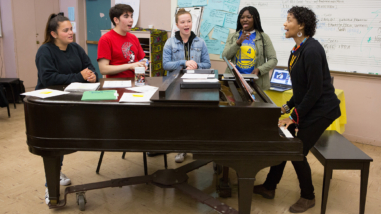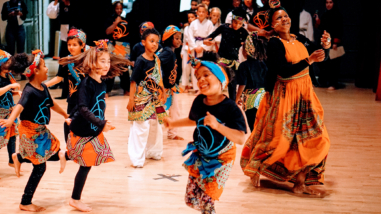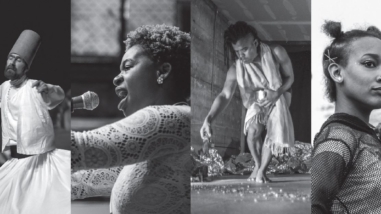Imagining social protections for all
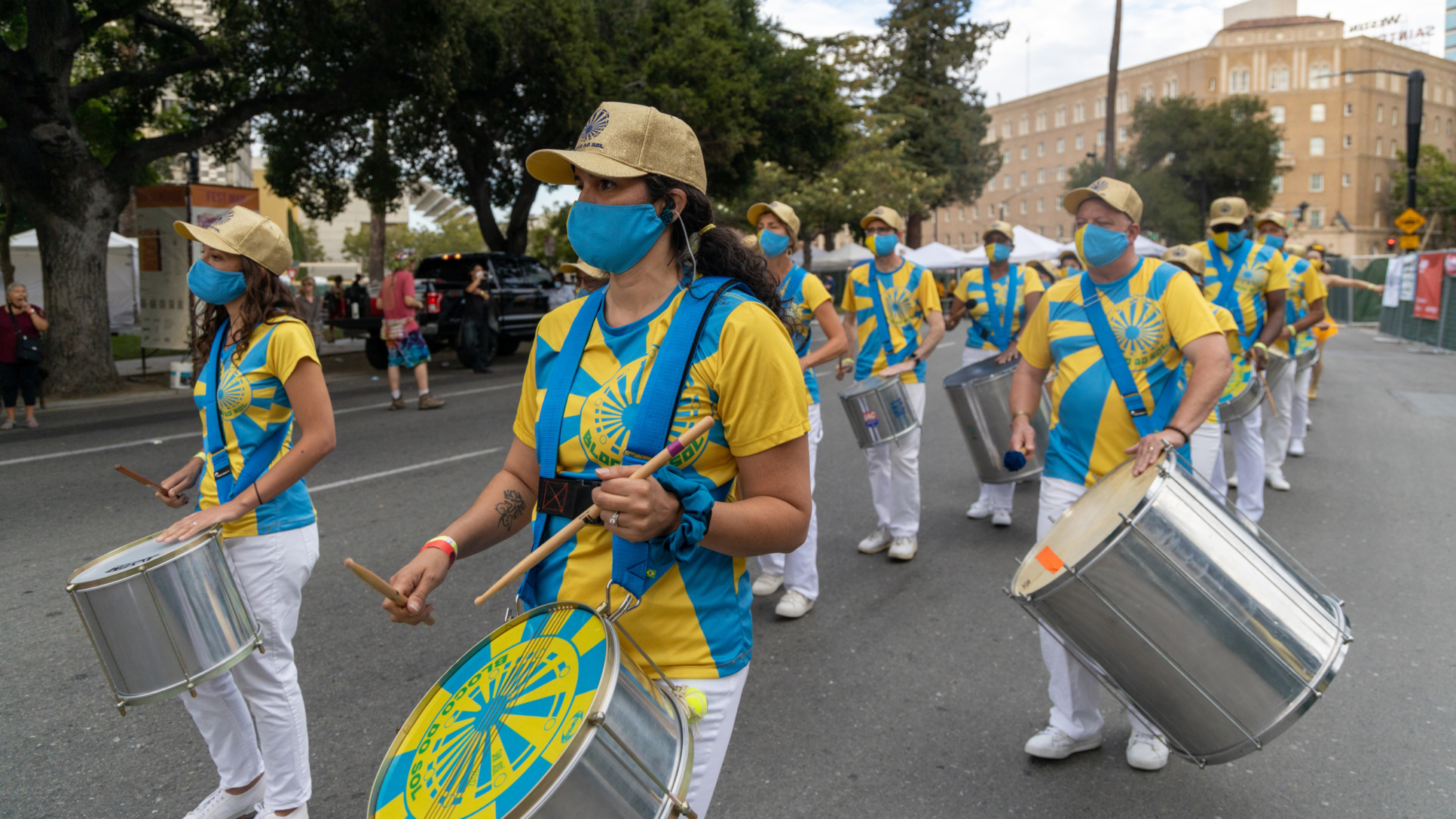
Sometimes when we’re living inside a system, it’s hard to imagine what an alternative could look like. In our desire to make progress — to improve the way things work — we focus on a tweak here, a shift in implementation there. And to some extent, that can be a good and pragmatic strategy. But it has its downsides.
When we seek fixes for the systems we live in, we may unintentionally reinforce and entrench systems that simply don’t work — or worse, undermine our chances of achieving more transformative change. For example, the U.S. social safety net excludes huge swaths of workers — independent artists, domestic workers, farm workers, self-employed workers, sex workers, and undocumented workers, just to name a few. Some of these groups were explicitly excluded, while others were merely overlooked. A lot of effort has gone toward closing these gaps — expanding existing systems to new populations by, for example, including domestic workers in labor laws or excluding workers from unemployment insurance. But what if the 21st-century workforce simply doesn’t fit into 20th-century systems?
What if we started fresh and codesigned a set of social and economic protections that meet the needs of today’s workforce, unencumbered by the past? And what if we started that conversation with the workers who have, in the past, been excluded from it — the ones not protected by today’s safety net? What types of protections might we imagine together? And wouldn’t that system be more likely to actually work for everyone?
Those questions underpinned “Reimagining Social Protections for Independent and Other Traditionally Excluded Workers,” an event that the Center for Cultural Innovation co-hosted with the Urban Institute in December 2022, with support from the William and Flora Hewlett Foundation’s Performing Arts Program. We brought together worker advocates representing nontraditional workers from across a wide swath of sectors — arts workers, domestic workers, migrant workers, temporary workers, street vendors, migrant workers, sex workers, and more. Together, we set aside the constraints of today’s systems and gave ourselves permission to imagine an alternative vision of economic security for everyone who contributes to a well-functioning society, to dream beyond barriers of all kinds.
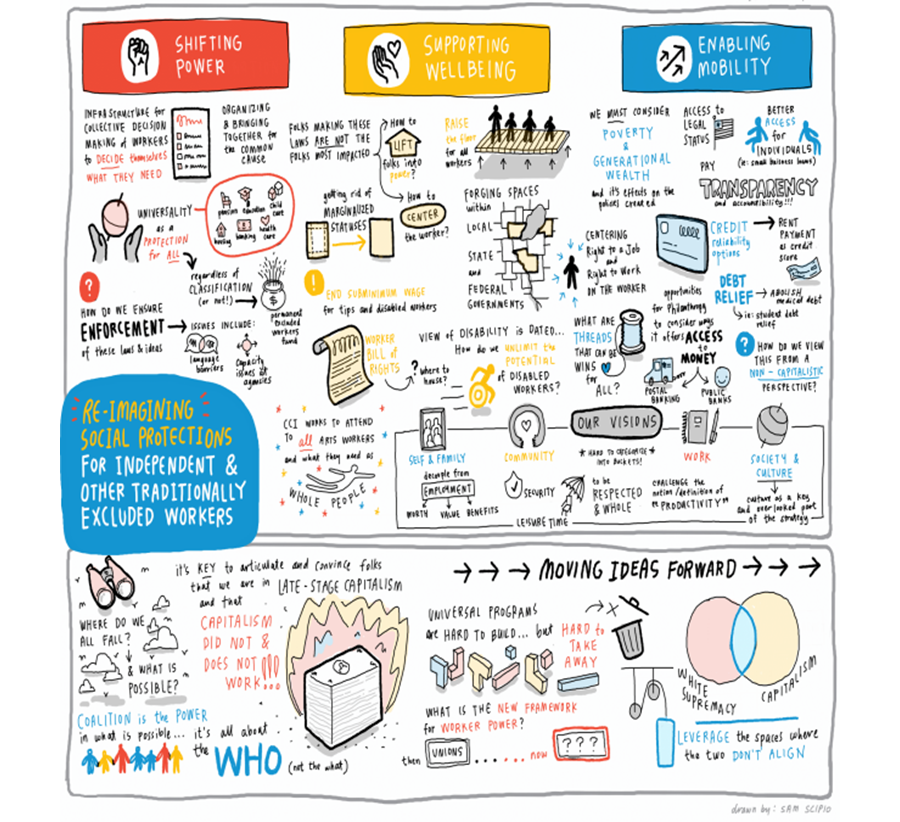
The ideas that garnered widespread support among the participants were inspiring. They start to paint the picture and the true possibility of an alternative system of protections that isn’t contingent on your specific job or identity as a worker but is guaranteed to you, as a human.
In particular, attendees imagined:
- Widespread adoption of guaranteed income and other cash transfer programs that offer a floor of protections for all workers, regardless of employment status.
- Improvement of key social insurance programs, including healthcare, unemployment insurance, and retirement to make them affordable, portable, and universally available to everyone, regardless of their employment status.
- The need to arrive at shared agreements on how to pay for expanding protections and to adopt redistributive tax policies.
- The establishment of a national worker bill of rights that would apply to all workers, regardless of sector, occupation, or employment status.
- Robust enforcement of labor laws and worker protections across all sectors.
- Exploration of new models for building and wielding collective power, like sectoral bargaining, which cuts across industry and issue areas.
Driving the discussion were some core ideas — real cultural and narrative shifts — that we, as a society, need to grapple with.
Most importantly:
- We need to decouple work from worth.
- The value of labor is shifting from jobs to people’s contributions societally.
- All people deserve dignity.
- We are full humans deserving support, not just in the narrow confines of our identities as workers.
- Our labor is more than the labor we do to earn income. It is the labor we do to support our families, strengthen our communities, and express ourselves that makes life worth living.
- A just society recognizes the value of people as humans and builds systems to support broader human flourishing.
As inspiring as the visioning was, participants also acknowledged the challenges that stand in the way of moving from the systems we have to the systems we want, especially with today’s polarized and gridlocked politics in the United States. Despite those challenges, there was palpable energy in the room around building greater connectivity and connection across the groups in attendance, to build greater collective power between and among nontraditional workers across sectors.
The challenges are great, but if we can align ourselves around a shared vision, we can start to build bridges to get from here to there.

